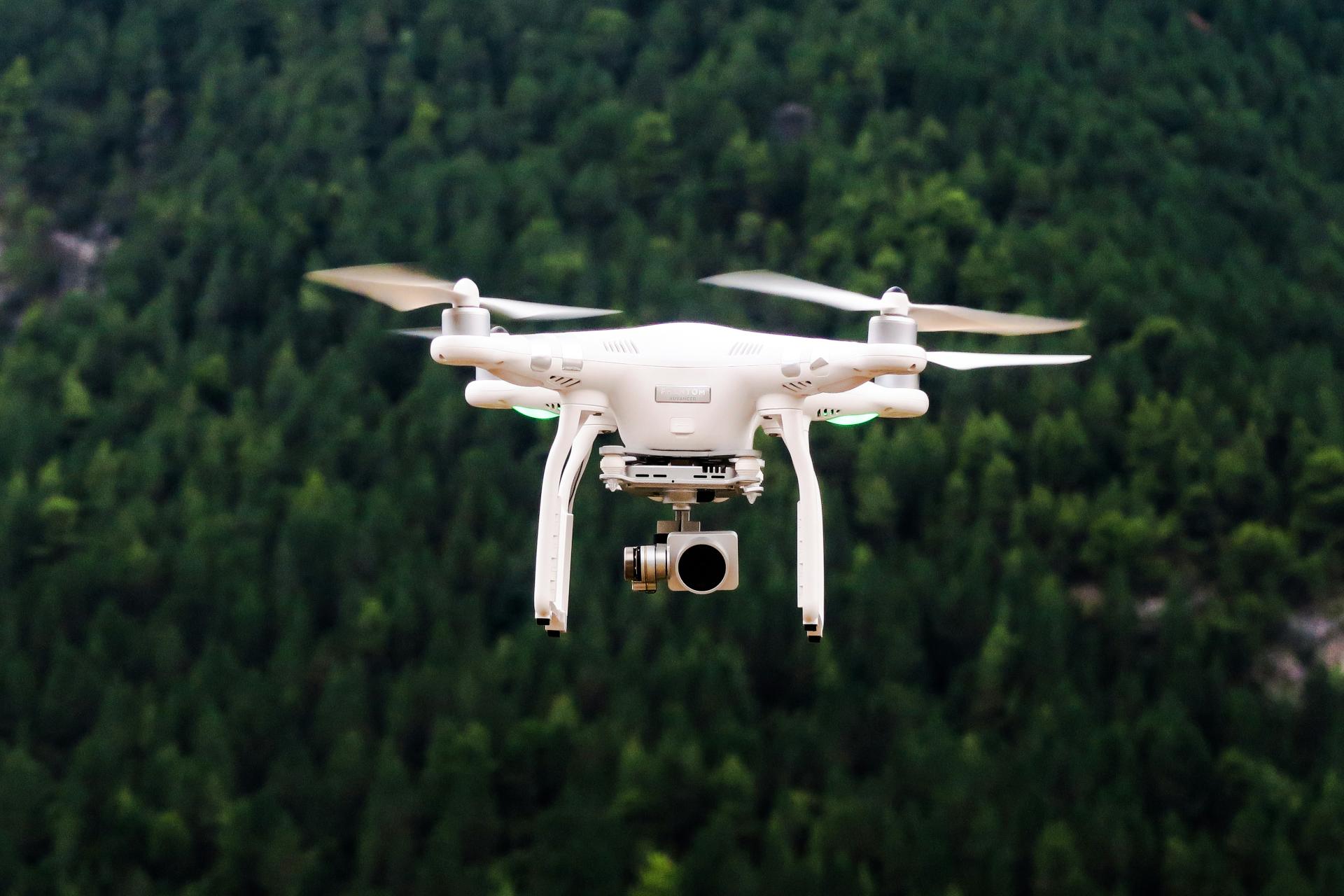Combining scientific and innovation promotion competencies, Riga Technical University (RTU) has established a new type of academic group that will create new knowledge and innovative solutions in the field of unmanned technologies—air, land, water, and underwater. The academic group has an ambitious goal: to become a leader in drone technology research and development at the national and Baltic levels.
The academic group will also coordinate RTU's collaboration with industry on these issues, making it easier for companies and organizations to find potential partners within the university. It will serve as a platform for student involvement in the research and innovation of these technologies, potentially leading to collaborations on thesis projects, mobility, and more. The creation of a student drone team in partnership with an industrial collaborator is also being considered, helping future professionals acquire and refine various skills.
“Competencies in drone technology exist across several RTU structural units. To create new knowledge, purposefully develop technologies, fully collaborate with industry, and engage students and young researchers, it was important to identify and unite these competencies on a single platform,” says Ivo Vaicis, the innovation pro-dean of the Faculty of Civil Engineering and Mechanical Engineering at RTU, and the head of the new academic group.
The new academic group brings together scientists from several institutes within RTU’s Faculty of Civil Engineering and Mechanical Engineering, including the Institute of Mechanical and Biomedical Engineering, the Institute of Aeronautics and Space Engineering, the Institute of Transport, and the Institute of High-Performance Materials and Structures. Researchers from the Institute of Applied Computer Systems and the Institute of Photonics, Electronics, and Telecommunications at the Faculty of Computer Science, Information Technology, and Energy are also involved, recognized internationally for their work in information and communication solutions, artificial intelligence, sensors, and chip technology research and development. Scientists from the Institute of Chemistry and Chemical Technology, and the Institute of Materials and Surface Technology at the Faculty of Natural Sciences and Technology, who are also developing various coatings, are part of the group. Representatives from RTU’s High-Performance Computing Center and the Science and Innovation Center’s Innovative Product Development and Innovation Ecosystem Development Department are also included.
Participation in the group is voluntary, and representatives from other structural units with interest, knowledge, and competencies necessary for the development of this field are welcome to join. A drone competency matrix created this summer confirms that several more structural units could potentially join.
The new academic group is also collaborating with the Rēzekne Technology Academy, which will integrate into RTU's science ecosystem as a separate structural unit starting April 1 of next year. Strong collaborative ties are also being established with one of the world’s top 500 universities—Politecnico di Torino. As noted by I. Vaicis, this university is highly regarded for its development of drone technologies for both civilian and military applications and collaborates with the global aviation, defense, and security company "Leonardo." By establishing itself as a strong partner, RTU could open up opportunities to participate in research and development projects in consortium with Politecnico di Torino. Potential collaboration areas with the Italian university could include the use of drones in agriculture, such as precision crop spraying according to environmental requirements, safe flight route planning and adjustment over populated areas for goods delivery, and the use of drones in infrastructure inspections.
Participation in international science and innovation projects in collaboration with foreign academic and industry partners is one of the group’s operational objectives. It will also support national security organizations, build and promote collaboration with the national industry for the development of military and industrial drones, and facilitate technology transfer and commercialization. I. Vaicis shares that there is industry interest in collaboration, for instance, in the study of aerodynamics. Given the geopolitical situation, he estimates that drone solutions will become increasingly relevant, and RTU will assist companies in implementing research and development projects.
The new academic group operates under the auspices of RTU’s Innovation Vice-Rector's Office. To promote interdisciplinary collaboration in science and innovation, RTU will establish other academic groups as well.
Photo: Unsplash.com
